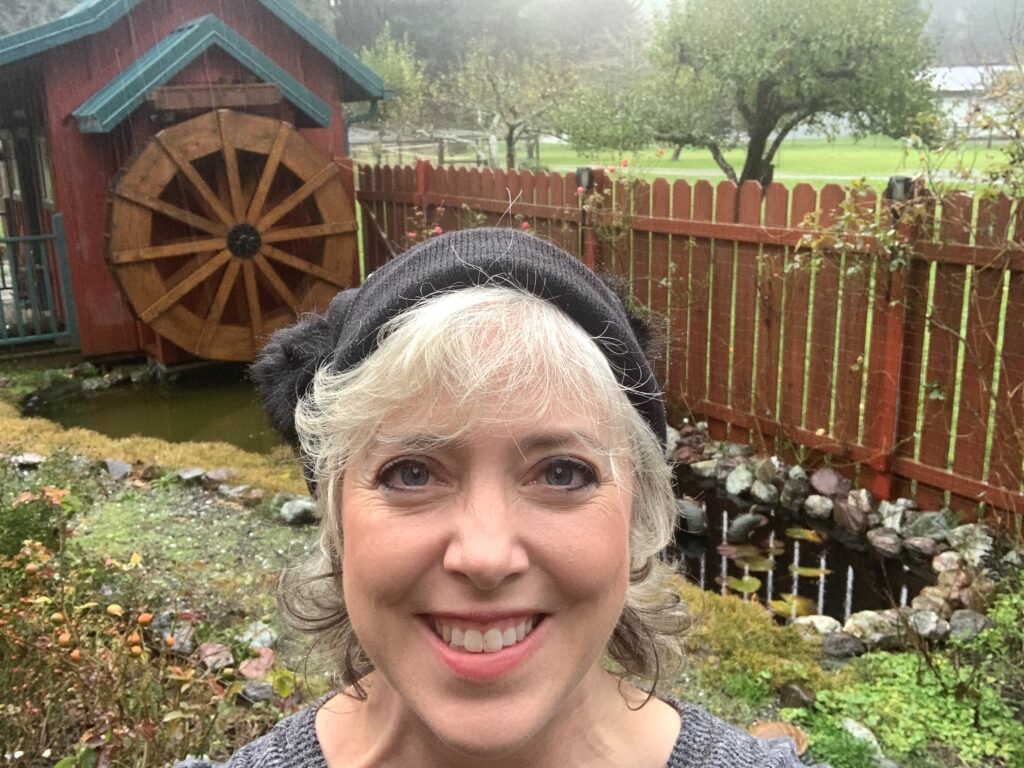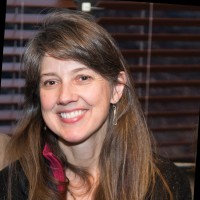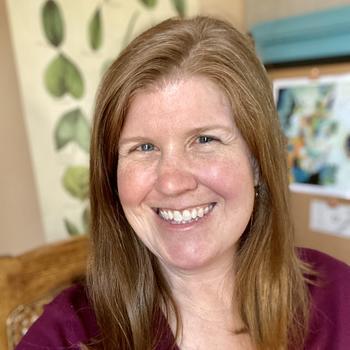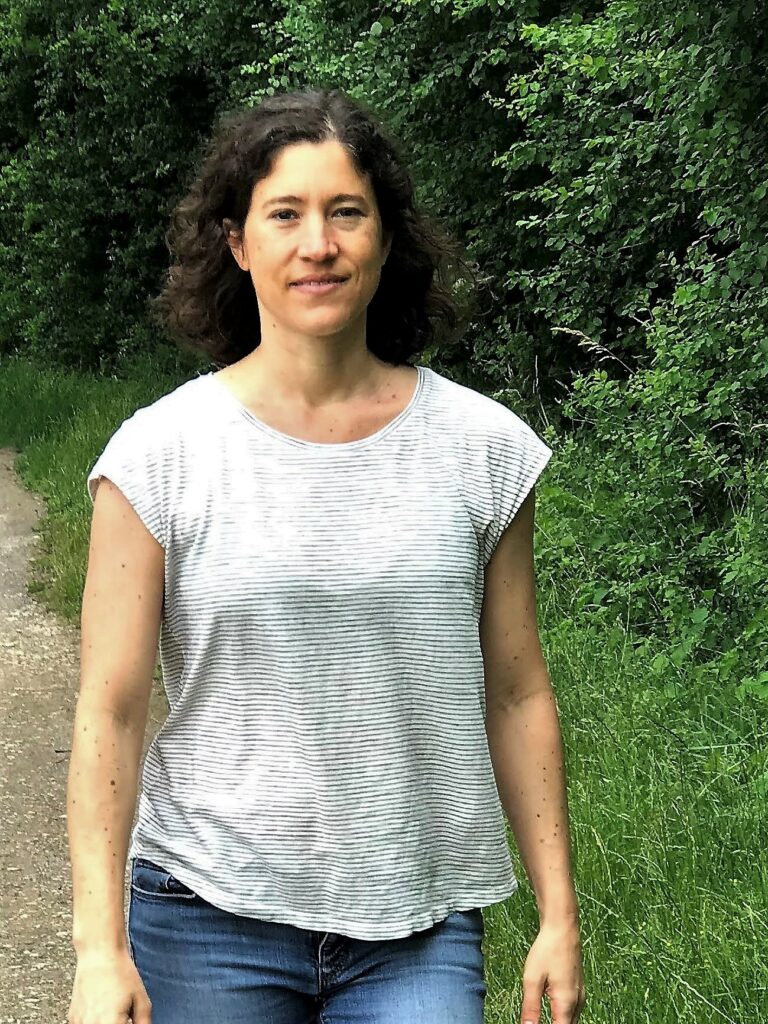This is an update in our ongoing series of the work being done in the OSU Master Gardener program of growing who we are and serve and creating a community where everyone belongs. Formerly known as the OSU Extension Master Gardener Diversity, Equity and Inclusion Taskforce, the group has a new name. Read on to learn more.
What is the Statewide Growing & Belonging Committee?
The Statewide Growing & Belonging Committee of the OSU Master Gardener Program is a group of Master Gardener volunteers and faculty from across the state dedicated to growing who we are and who we serve, and to cultivating an experience of belonging in our programs for all Oregonians.
Why does Growing & Belonging matter?
Growing & Belonging is essential to achieving the mission and vision of the OSU Master Gardener Program. We need to grow who we are and who we serve in order to cultivate resilient and healthy communities and expand the reach of science-based gardening practices across Oregon.
For resilient and healthy communities, Oregon needs informed gardeners, and more of them. And just as a healthy garden is biodiverse, so too is a healthy gardening program. This means we seek to attract Oregon gardeners from all counties, backgrounds, ages, races, ethnicities, nationalities, genders, abilities, income levels, renters/homeowners, gardening experience levels, and more.
To attract gardeners of all backgrounds, Master Gardener programs and practices must create an experience of belonging for all participants and potential participants.
Why is a Growing & Belonging Committee needed?
When we look at who the current Master Gardener volunteers are, we see that the make-up (age, gender, race, ethnicity, income, etc.) doesn’t match the makeup of Oregonians interested in gardening. Master Gardener volunteers skew retired, landowning, female, and white. Yet we know Oregonians from many different backgrounds are interested in gardening.
Whenever a group’s make-up is skewed, there are reasons why that happened. Usually, structural reasons, meaning policies and practices rather than individual behaviors—although those play a role too. Policies and practices that, by design, benefited some and excluded others. Often, the biggest reason for a group’s skewed makeup has to do with the impact of these compounded over several decades.
Policies and practices of the past—and many still today—intentionally left some people out, based on their race, ethnicity, gender, citizenship status, and more. OSU’s Master Gardener Program exists to serve the public, and that means everybody. It is our responsibility to make sure no one is left out. That requires new intentional policies and practices, and that’s why the Statewide Growing & Belonging Committee is needed.
Is the focus on Growing & Belonging new?
This focus has actually been a part of OSU and federal work for some time. A demonstrated “commitment to diversity and to ensuring equal opportunity for those wishing to benefit from OSU Extension programs and services” is included in every OSU Extension Master Gardener volunteer’s position description. A commitment to diversity, equity, and inclusion is also written into the position description of every OSU Extension faculty member. This work is also an expectation of any program that receives assistance from the United States Department of Agriculture (USDA).
The work of the Statewide Growing & Belonging Committee will help the OSU Master Gardener Program do a better job of what has long been a stated part of our roles as Master Gardener coordinators and volunteers.
What are the values of the Statewide Growing & Belonging Committee of the OSU Master Gardener Program?
Our values are the OSU Extension Master Gardener Program Guiding Values:
We are connected to Oregon State University, and use both science and local knowledge to inform our community engagement, educational outreach, and horticultural expertise. We strive to make the resources of Oregon State University accessible to all and inspire and encourage lifelong curiosity and learning through continued scientific exploration and discovery.
We are connected to our local communities, and their needs drive the work of our program. We are inclusive, where everyone is welcome, respected, valued and supported. We know that collaboration and partnership with our communities, community organizations, and neighbors make us stronger and that together, we create positive change.
We are connected to our earth and strive for stewardship and sustainability through horticultural best practices and a conscientious approach to volunteer work in alignment with our program priorities. We aim to improve not only the lives of the people within our communities, but also the land which sustains us, and future generations.
We are driven by a sense of fun, wonder, and curiosity for the natural world and a commitment of service to our local communities.
The Statewide Growing & Belonging Committee seeks to live these values by growing who Master Gardener volunteers are and who we serve, and by cultivating an experience of belonging in our programs for all Oregonians.
What is belonging? What does it have to do with gardening?
Everyone has had a moment when they felt like they didn’t belong. It’s not a feeling you forget.
Belonging is a universal human need. In part, it’s a felt sense—either you experience it or you don’t, based on how you’re being treated. For example, if you enter a room and everyone stops talking and looks at you, you may feel like you don’t belong there. But if everyone smiles at you and waves you in, if you smell a favorite food, if the music playing is familiar—you would likely feel belonging.
Belonging is also structural, or about how things are set up. For example, if you need a ramp to get into a building and there are only stairs, then how the building is set up is sending a signal that you don’t belong there. But if you need an interpreter at an event and one is already provided, that’s (part of) structural belonging.
Everyone has also had moments when they felt like they did belong. Belonging is getting to show up as your real self and be accepted by those around you. It’s also getting to be a part of making decisions. All this has to do with the culture that a group chooses to cultivate. The thoughtful adjustments a group makes so everyone experiences belonging, both interpersonal and structural.
The vision of the OSU Master Gardener Program is to “provide accessible and equitable education programs that nurture life-long learners and volunteers who can expand the reach and impact of science-based sustainable gardening practices to benefit all Oregonians.” For our programs to be truly accessible, participants need to know they will experience belonging. Otherwise, they may not decide to participate at all.
What explains the current Master Gardener volunteer demographics?
Mostly, structural barriers. One of the biggest is access to land, which is necessary in order to garden. Let’s take a look at a brief history of land/home ownership in Oregon:
- Since time immemorial, Native people have lived on—and in relationship with—the land we now call Oregon. There was no such thing as land ownership.
- In the mid-1800s, the U.S. military violently forced Native people off their homelands and onto reservations. The U.S. federal government passed the Donation Land Claim Act, which granted white men in the Oregon Territory up to 320 acres each. The U.S. government deliberately excluded men of other races and unmarried women.
- The U.S. government also used stolen Indigenous land as the foundation of the land-grant university system, of which OSU is a part.
- In 1844, Oregon’s Provisional Government passed its first black exclusion law. Black people who tried to settle in Oregon would be publicly whipped—39 lashes, repeated every six months—until they left Oregon.
- From a 1919 Portland Realty Board rule declaring it “unethical for an agent to sell property to either Negro or Chinese people in a White neighborhood” to subprime lenders targeting Black and Hispanic families at twice the rate of white families in 2006, the compounded impact of racist housing policies means lower rates of home—and land—ownership for people of color in Oregon today.
That’s just a small slice of history that helps explain the state of home/land ownership. Of course, many renters can and do garden, but it’s harder to put in the up-front costs and labor that go into a garden if you know you’re going to have to move someday.
On top of the crucial piece around land ownership/access, we recognize that the current Master Gardener make-up is the way it is also due to barriers in the way the program was originally set up.
- Cost: Varies across counties from $150 – $450 (with scholarships available on a county-by-county basis) is out of reach for many people.
- Timing: When classes are held during the workday, those who work full-time can’t participate.
- Hours required: With 45+ hours of volunteer service required, it’s hard for parents raising kids or with full-time employment to take part.
- Language: With instruction only available in English, folks more comfortable learning in another language cannot yet go through the program.
The Statewide Growing & Belonging Committee of the OSU Master Gardener Program is working to break down these and other barriers.
What is the history of the Growing & Belonging Committee?
In 2017, based on recommendations that emerged from an annual meeting of OSU Extension Master Gardener Coordinators, a subgroup formed to answer this question:
“How can we re-envision Master Gardener volunteer training to make annual trainings a) more broadly accessible, b) more active and interactive, and c) more fun?”
Research confirmed what had long been suspected: 3-hour lectures do NOT represent research-based best practices for adult learners. Several of the recommendations focused on removing systemic barriers to participation in the program, such as:
- Reducing the cost of classes
- Reducing the volunteer service hour commitment
- Providing flexible options for engaging with the program such as a hybrid online/in-person training option
In 2020, a statewide committee of Master Gardener volunteers was formed to inform changes and growth of the program. Initially known as the Diversity Equity and Inclusion Task Force, or JEDI group, today this is the Statewide Growing & Belonging Committee of the OSU Master Gardener Program.
The 2022 Master Gardener training season adopted a hybrid training approach that enabled people who otherwise would have been locked out to participate in the program. Response from new Master Gardeners in 2022 has been overwhelmingly positive.
“Having the Master Gardener Program available online has helped me easily fit the coursework into my other obligations, like working full-time. I’ve loved being able to nurture my gardening knowledge in my own time, getting myself prepared for in-person volunteering this spring!” —Mary P., 2022 Master Gardener Trainee
The Statewide Growing & Belonging Committee continues to identify ways to grow who OSU Master Gardeners are and who we serve and to cultivate an experience of belonging in our programs for all Oregonians.
Learn more about the history of this work. If you have suggestions for ways we can make our programs more accessible, please contact Statewide Master Gardener Outreach Coordinator LeAnn Locher at leann.locher@oregonstate.edu.
Next up: an update on the work of this year’s Cohort

















